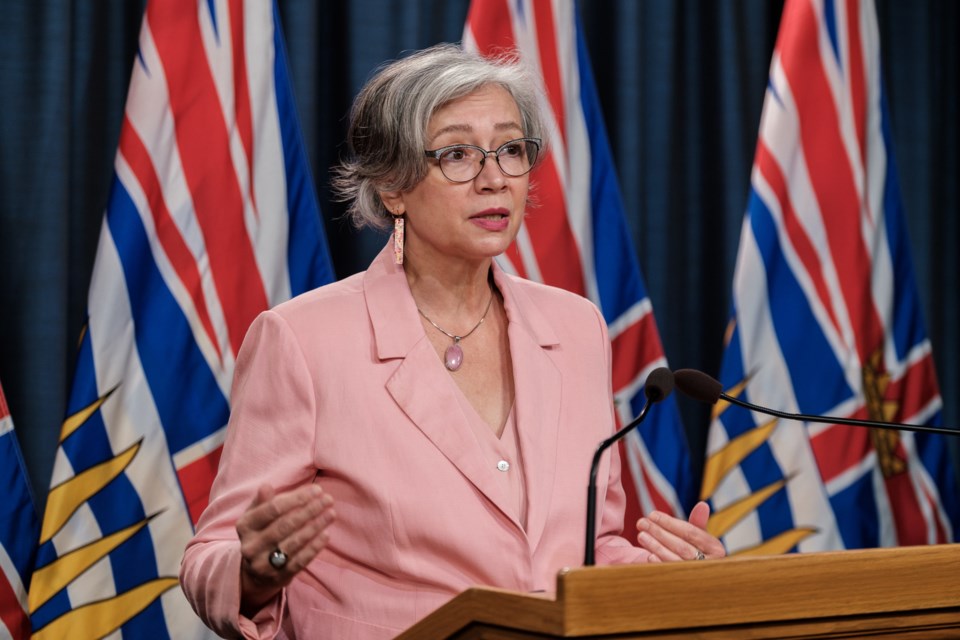BC school trustees have never had an easy job, but it’s about to get a lot harder now that the province has dumped the question of mandatory vaccinations for teachers into the laps of individual districts.
Trustees in the province’s northern districts must be dreading the idea that they’ll soon have to decide whether to require school staff to be vaccinated as a condition of employment.
Vaccination rates continue to lag behind the provincial average in many northern cities, where the issues of personal choice and a distrust of government have collided into a vaccine hesitancy that is fuelling rising case counts and overwhelming hospitals.
Instead of showing decisive leadership in those communities by instituting mandatory vaccinations for school staff in order to protect vulnerable kids from infection, the BC government has effectively tossed the school trustees to the wolves and looked the other way.
What exactly does the government think is going to happen under its new policy to let 60 different districts vote 60 different times on vaccinations?
It seems clear how this will play out: Districts where the vaccination rate is already high, like the Lower Mainland and Vancouver Island, will easily pass vaccine mandate motions. But districts representing communities that actually need mandatory vaccinations inside schools to drive down infection rates, like in parts of the Interior and North, will get bogged down in endless community infighting, leading to heated board meetings where divided factions within small towns will exert immense pressure on school trustees to stay out of the issue entirely.
When you look at it that way, it helps bring into sharper focus what kind of timid and backward policy the BC government has actually adopted. It does nothing to help school boards that most need support from provincial leaders. And it fails entirely to advance the issues of public health in communities where raising the vaccination rate could literally save lives.
Education Minister Jennifer Whiteside has lamely convened an “advisory committee” to come up with best practices that school districts can adopt.
After getting steamrolled by the issue for days, she offered on Wednesday the first clear indication of where some people inside government place the blame for this developing fiasco.
“We do not have a public health order that would allow a provincial approach,” Whiteside told the legislature while getting grilled in question period.
That appeared to be a shot at Provincial Health Officer Dr. Bonnie Henry, who said on Monday she couldn’t issue a public health order mandating vaccines for school staff because she doesn’t see an urgent health issue inside schools, and so it falls short of the legal hurdle she requires for an order.
Henry in her position remains at odds with parents, teachers and much of the general public who are convinced COVID-19 cases amongst children are rising due to transmission inside schools. Those groups want Henry to act, but Henry says the data doesn’t support her intervention.
Henry’s unwillingness to set one clear provincial order has left the government bogged down in all sorts of dense legal navel-gazing about whether it can go it alone.
The government’s labour relations lawyers are now involved, and they’ve concluded the province can’t mandate vaccines for teachers and school staff who are technically employed by the individual school districts overseen by boards of trustees.
“We have a situation where… school boards are the employers of school staff,” said Whiteside.
“So I convened a meeting of all of our education partners yesterday to support the development of guidelines that will inform the decisions that boards will make when they are considering mandatory vaccination policies for their staff.”
That might play well in Whiteside’s home riding of New Westminster, where the school district is already seeking legal advice in a proactive attempt to become the first to vote to mandate vaccines.
But in the areas of BC hardest-hit by COVID-19, the government’s hands-off approach over vaccine leadership in schools will do little. Worse, it may do more harm than good in communities that need the most help.
Rob Shaw has spent more than 13 years covering BC politics, now reporting for CHEK News and writing for The Orca. He is the co-author of the national best-selling book A Matter of Confidence, and a regular guest on CBC Radio.
SWIM ON:
- Rob Shaw last wrote about BC’s legislature returning back to normal, with all 87 MLAs shoulder to shoulder. As cases and hospitalizations continue to mount, it’s a bad look – even if Dr. Bonnie Henry says it’s safe.
- They later reversed course, but in June the provincial government raised hackles by announcing schools would no longer send email notifications when someone tests positive for COVID-19.
- Why not make it easier to charge EVs – and help cash-strapped schools at the same time? Sometimes solutions are right in front of us, says Jody Vance.



